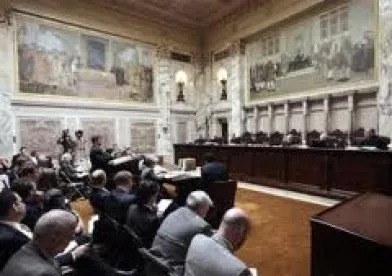Yesterday, the Wisconsin Supreme Court dealt a blow to public unions in the state when they held that the Wisconsin Employment Relations Commission has the authority to decertify bargaining units that ignore the Commission’s annual recertification election rules.
The litigation stems from Wisconsin’s Act 10, a controversial 2011 law championed by Governor Scott Walker, which curtailed collective bargaining rights for most public workers in the state while weakening public unions financially and making it more difficult for them to organize.
Pertinent to this case, the legislation requires unions representing state and municipal employees to hold recertification elections every year by December 11. The Commission in charge of overseeing those elections set a rule requiring unions to file for the recertification election by end of business on September 15 – or else risk decertification. The rule was challenged by two unions who were decertified after filing one hour late in 2014. The lower court ruled in the union’s favor, saying the Commission overstepped their authority under Act 10.
The state’s Supreme Court disagreed, holding that the law requires a “demonstration of interest from labor organizations interested in representing collective bargaining units,” and it gives the Commission the authority to set rules and decertify those unions not complying with the rules.
Wisconsin has been a hotbed of recent labor relations disputes due in large part to Governor Walker’s legislative push targeting unions. Following Act 10 in 2011, Wisconsin became the 25th right to work state in 2015, a move that drew the ire of union leaders and led to protests at the capitol in Madison.
There is no parallel requirement under federal law for unions to prove their representational status each year. Generally speaking, once a union is certified they tend to retain their representational status indefinitely, only being undone by a decertification election – not an easy task. In fact, research shows that most (93%) union members have never voted for the union that represents them, instead inheriting the union when they started the job. State legislation like that in Wisconsin aims to combat this fact by requiring unions to prove each year that their membership still supports them.
The Wisconsin court ruling comes at a precarious time for unions as they attempt to weather the storm of a Republican President, Congress, and majority of state legislatures unsurprisingly critical of organized labor. In the public sector, we are awaiting a decision in the potentially landmark decision in Janus v. AFSCME, the U.S. Supreme Court case that many believe will invalidate state laws requiring workers who choose not to join a union to still pay mandatory public union fees.




 />i
/>i


